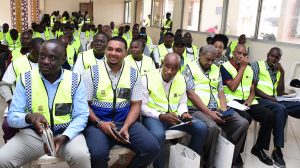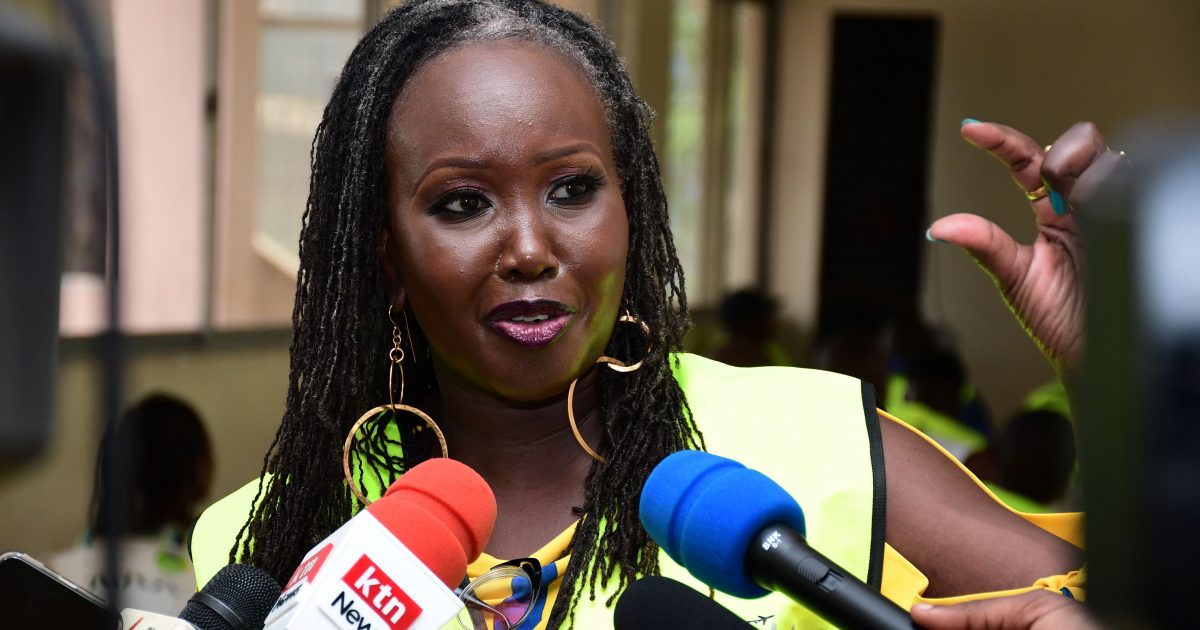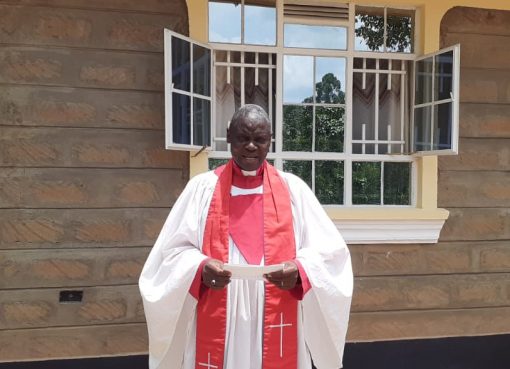The Electric Mobility Taskforce has hit the ground running to solidify Kenya’s commitment to clean energy through finalisation of public participation in the draft National Electric Mobility Policy.
The policy is geared to play a pivotal role in the adoption of e-mobility in the transport sector through the provision of a transition framework from the use of Internal Combustion Engine Vehicles (ICEVs) to Electric Vehicles (EVs).
Kenya’s e-mobility policy is in line with the National Climate Change Action Plan (NCCAP) 2023-2027, Long-Term Low Emission Development Strategy (LT-LEDS) 2022-2050 and the Nationally Determined Contribution (NDC) through which Kenya targets a 32 percent reduction in greenhouse gas (GHG) emissions by 2030.
Taskforce Vice Chairperson Jerotich Seii said members are rushing against time to conclude public participation forums in Kisumu, Eldoret, Nakuru, Nairobi, Machakos, Mombasa, Isiolo and Nyeri.
Seii stated during a public participation forum for Mombasa, Lamu, Tana River, Taita Taveta, Kilifi and Kwale Counties at the Ronald Ngala Hall Monday that the Coast region phase of public participation marks the penultimate drafting of the e-mobility policy.
“The e-mobility policy in Kenya is overdue. We are happy as a task force to be the ones who are introducing this innovative approach to transport and its management,” said Seii, adding that the policy looks at how the country can domesticate an EV approach.
She assured transport stakeholders that their views would be incorporated into the final document before it is handed over to the Cabinet Secretary for Transport and Roads.

“This is a comprehensive policy that looks at the entire value chain of the EV mobility landscape in Kenya,” said Seii.
She went on, “The policy will go a long way towards greening our country, taking us away from greenhouse emissions and toxic fumes that are emitted when we use ICEV and into a cleaner and more sustainable way of transporting ourselves.”
The policy, according to Seei, will create a profitable and protective space for those who will move from ICEVs to EVs. She noted that some of the critical issues the policy is addressing with county governments are the range anxiety and affordability of EVs.
Seii further revealed that the country has had steady growth in the use of electric bicycles, motorcycles, TukTuks and buses since 2018. At the moment, the total number of EVs registered in the country stands at 4047. She urged boda boda operators to go electric to reduce their carbon footprint.
“As a task force, we have moved hard and fast to get this work done. It will happen. This is part of a wider global commitment that Kenya has made through the president. We will ensure the policy becomes the bedrock of our move into cleaner and more sustainable transport throughout the country,” she said.
Mombasa County Executive Member (CECM) for Transport Dan Manyala lauded the development of the policy, saying they have passed a policy on transport that focuses on charging infrastructure and ways of attracting investors to assemble electric motorcycles and three-wheel motorcycles (TukTuks) in the coastal city.
“The governor unveiled an industrial park where investors can set up shop to assemble EVs, which will result in a reduction in prices,” said CEM Manyala.
He acknowledged that the charging points are few but said they are encouraging investors to set up charging points through incentives like tax rebates. They are also mulling the setting aside of road reserves for setting up charging points along the roads.
CECM Manyala advised the two levels of government to devise ways of reducing the prices of EVs, like through exemption of VAT on spare parts and tax rebates.
Benson Njoroge, Chairman of Mombasa Tuktuk Operators, said Mombasa has more than 20,000 Tuktuks that will play a pivotal role in the transition. He wants the policy to address the affordability and durability of electric Tuktuks.
“We want the government to also look into the power outages so they do not affect the work of our members,” said Njoroge.
Agnew Omanga Secretary General Tuktuk Association said Mombasa is on the right trajectory in embracing e-mobility.
By Sadik Hassan





